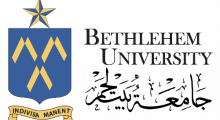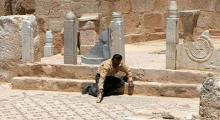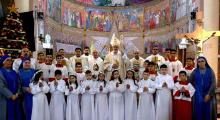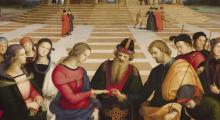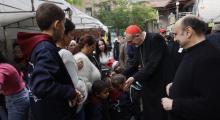Issued by the Catholic Center for Studies and Media - Jordan. Editor-in-chief Fr. Rif'at Bader - موقع أبونا abouna.org
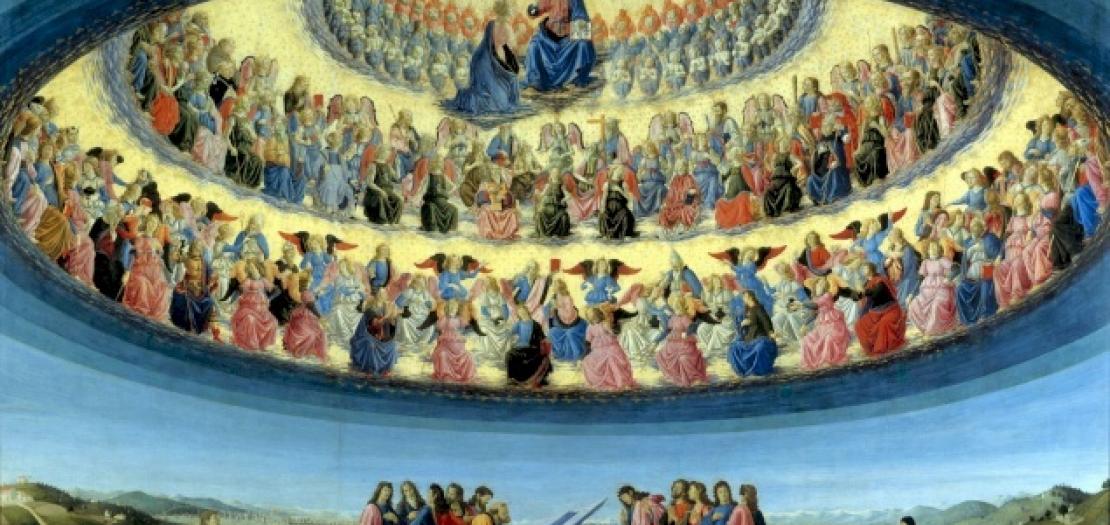
Following is the text of the meditation by Latin Patriarch of Jerusalem His Beatitude Pierbattista Pizzaballa for the 19th Sunday of ordinary time, Year C, August 7, 2022:
Today’s Gospel passage (Luke 12:32-48) can be read in the light last Sunday’s (Luke 12:21-31) when we saw a foolish man, who thought he could live well just because he had accumulated so many riches. That man had filled the life with things, and things had closed his horizon. Everything was forgotten in this life, without openness to a “beyond”.
We could say that his heart was entirely here, on this earth, where he had his sole possessions. (Luke 12:34)
They were many, but they were only for this life.
Today’s Gospel opens with the announcement about true riches: “Fear not, little flock, for it is your Father’s pleasure to give you the Kingdom” (Luke 12:32). What is this wealth that differs from the one that accumulates on Earth?
The evangelist presents us with three differences.
The first is that this wealth is given, donated (Luke 12:32). The Word does not say that we must work hard to earn it, like the rich man last week. The wealth that our Father gives is free, and depends only on the benevolence of God, on the fact that God “likes” to give us life, to share His existence with humans. That is His design, always.
The second is that, unlike the wealth which man accumulates from himself, this wealth does not fear death: “it is a safe treasure in the heavens, where a thief does not arrive, and the worm does not consume.” (Luke 12:33)
And that is because the wealth given to us by the Father is our sonship, our relationship with Him. And it’s a secure relationship because, as we have already said many times, it’s a relationship that has already passed through death, and hasn’t remained death’s prisoner.
The third is that, paradoxically, we receive when we share what we have with others. “Sell what you own and give it as alms; get yourself bags that don’t age.”
The rich man in last week’s Gospel built warehouses to amass his goods. Today we are told we must have “bags that do not age” to carry the wealth of the Kingdom. Namely, to possess eternal life, we must have suitable containers — the gift of eternal life cannot be placed in something that is destined to perish instead.
The Gospel insists on vigilance (“be ready, with your loins girt and your lamps lit, v.35). Christian watchfulness is the art of discernment of the signs of the times. To watch means to look for the signs of God’s design, His Kingdom, within human history we are living. It requires patience, trusting in God, looking at history, as an opportunity given us, and also taking action. This Kingdom is not beyond; it is here. Vigilance must lead us to recognize the signs here and now and to commit ourselves to give them concrete visibility.
Today’s Gospel continues with a parable that we can also read in light of last Sunday’s.
Just as last Sunday’s rich man filled his emptiness with goods, so the servant of today’s parable fills the time of waiting with another form of wealth, that of power (Luke 12:45): power is another means with which man deludes himself to keep death away, to avoid limits.
But as we satisfy ourselves with false riches, so the human heart is satisfied with small powers. The man could have the Kingdom of Heaven, all of it, but instead, he seems content to lord it over whoever is a little below him, deluding himself.
In reality, we are called to greater dignity, that of being servants whom the master loves to such a point that he becomes their servant. (Luke 12:37)
Vigilance is therefore mainly a memory of this infinite dignity, which is given to us freely, while we wait for this dignity to become more and more the very essence of our life.
And it becomes so when we do like that master who returns to serve, and not to be served.
+ Pierbattista


